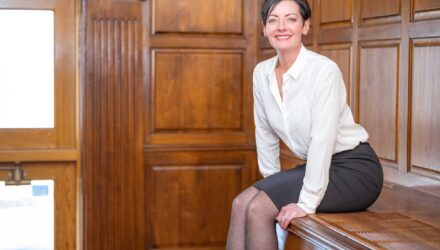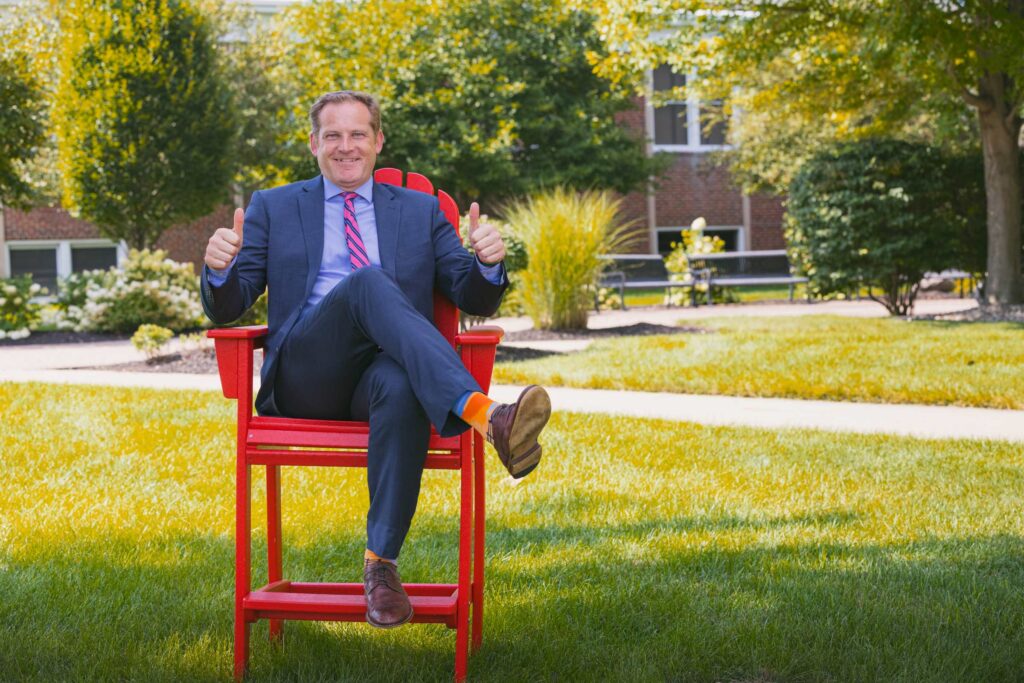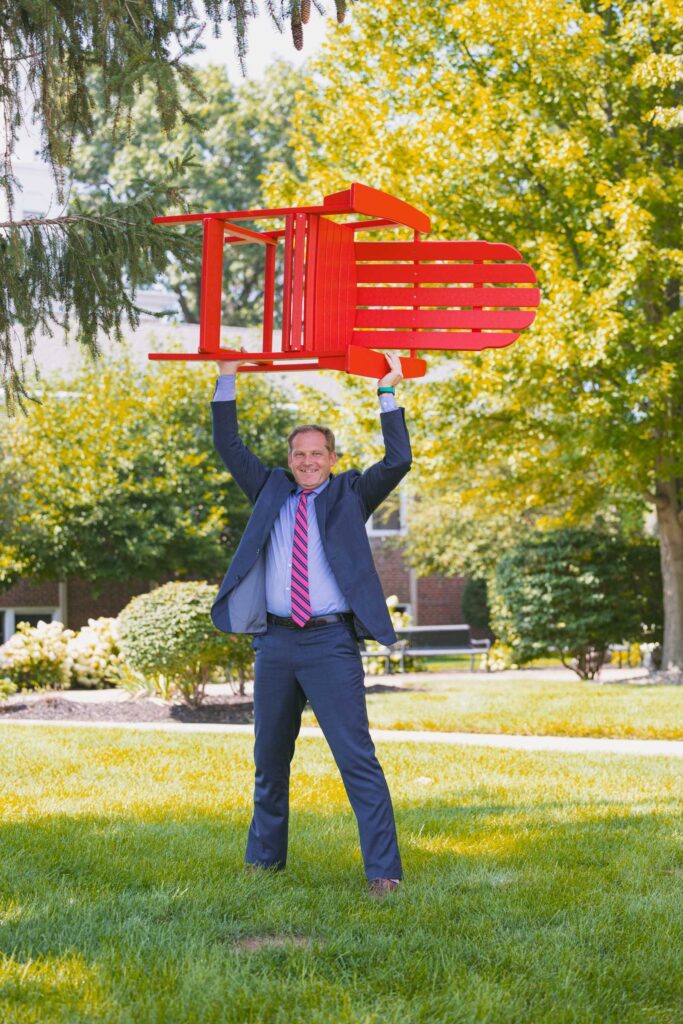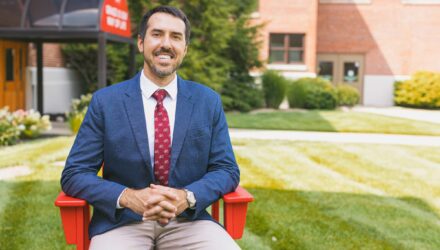
Meet Grace’s New Communication Professor, Dr. Matt J. Warner

As an undergraduate student, Dr. Matt J. Warner was faced with a tough choice — should he pursue English or print journalism? Unsure of which route would best suit his writing skills, Warner made the decision based on the professors. A big fan of the journalism faculty, Warner landed on print journalism under the umbrella of communication, and a trajectory was set. Now an associate communication professor at Grace, Warner just might be the deciding factor for an undecided student to pursue this versatile and ever-evolving field.
Coming to Winona Lake from Metro Detroit, we asked Warner a few questions to get to know him better and introduce him to the Grace community!
1. Walk us through your higher education journey.
I received a BS in print journalism and communication and an MA in public address and communication from Liberty University, and a Ph.D. in communication (specializing in citizenship and identity) from Wayne State University. During my MA, I took an elective in rhetoric and found that the principles at the core of our discipline are timeless and broadly applicable across contexts and eras. I figured I’d rather study and learn something that won’t expire than figure out how to make a Vine. So, halfway through my MA, I switched to public address and studied classical rhetoric. Then, in my Ph.D., I continued to study rhetoric, but from a more modern perspective, and added a cognate (minor) in composition, the teaching of writing.
2. What courses will you be teaching at Grace, and which one is most exciting to you as a communication professor?
I’m probably most pumped to be part of the First-Year Experience (FYE). This year I’m also teaching in my area of expertise – cultural critique — and expect to have an Intercultural Communication course in the Spring. I’m also teaching my favorite class I’ve taught — Interpersonal Communication. Interpersonal Communication is fun because students actually get to see the real-world impact of theoretical approaches to relationships. We go from lecture to application to life impact sometimes within a single class session! I’ll also be teaching some sections of Public Speaking in the fall and Professional Communication and Social Media Communication in the Spring.
3. Tell us about your academic research.
Specifically, my academic research is on how tourist experiences at national parks impact visitors’ sense of national belonging and identity — including how that sense of identity is ideologically interpellated with empire.
4. What practical experience do you have in the field of communication?
Professionally, I’ve worked as a technical writer for a critical communication radio manufacturer.
More recently, I’ve excelled in the corporate world, where I’ve taken what I call a rhetorical approach to my job and am able to leverage my experience as a communication professor by seeing non-obvious ways the business and teams are interdependent and networked. This is actually one of the biggest advantages of higher education generally, and a communication major in particular: the ability to critically analyze human organizations, understand the human dynamics, and respond in a way that immediately supports the mission of the institution. I experienced this in my most recent role at Walmart Associate Learning & Leadership, where I trained managers to run high-performing teams.

5. What is your most proud accomplishment in your field?
Up to now, I’d say organizing a panel at a national conference of who’s who in the Speech and Debate world, where I challenged a number of my friends to envision a new future for how we could best meet our learning objectives of intercollegiate speech and debate. I’m proud of it for a few reasons: one, I’m proud that I have so many excellent colleagues who I can also call friends; two, I’m proud that I uncovered a subterranean artery of discontent within the discipline that was primed for re-imagining; and three, I approached that subterranean discontent in a positive, focused way that, maybe indirectly, led some of my close colleagues to implement real changes.
6. What are two words you would use to describe your teaching style?
Curiosity and identity. My classes strive to unpack exactly what it means to be made in the image of God, what it means to love people well, and what the core non-negotiables of following Jesus are. In my classes, I talk quite a bit about predictable human behavior. This brings up questions of free will, agency, and our locus of control. As we discuss our locus of control, the question is, ultimately, how do we maximize human flourishing, and how do we respond appropriately to God and to others in love?
7. What are you most looking forward to about being a communication professor at Grace?
Two things, actually. First, personal-professional growth. My colleagues in the Department of the Humanities are brilliant, and I’m very much looking forward to working with them and having them sharpen my intellect, my teaching, and my research agenda. Second, is sharing my ongoing research and growth with students in real time. I believe knowledge is active and growing, and what I bring into the classroom –- in best-case scenarios — is new and exciting to both me and my students. I’m very much looking forward to learning with and from my students as a communication professor.
8. What are some fun facts about you?
My all-time fave book is The Great Gatsby, I’m an avid canoeist, and few things excite me as much as hiking or running to the top of a mountain before dawn to catch the sunrise.
